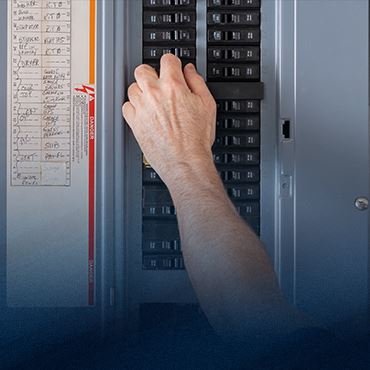DPM Dar, DG ISPR reject India's Pahalgam claims, warn of decisive resp
.jpeg)
DPM Dar, DG ISPR reject India's Pahalgam claims, warn of decisive response if provoked
Deputy Prime Minister and Foreign Affairs Minister Ishaq Dar and DG ISPR Lt Gen Ahmed Sharif Chaudhry spoke at a joint press briefing in Islamabad on Wednesday amidst growing tensions between Pakistan and India after the Pahalgam attack in Indian Illegally Occupied Jammu and Kashmir (IIOJK).
DG ISPR debased the Indian narrative, holding New Delhi responsible for conducting a strategy of misinformation, fabricated provocation, and terrorism sponsored by the state to destabilize Pakistan and the region.
He pointed out the geographical fact of the attack, saying that the location was deep inside Indian-held territory, distant from the nearest town of Bagh in Azad Jammu and Kashmir.
Emphasising Pakistan’s approach based on facts, he said, “If the allegation is that the Pakistan-based so-called terrorists did this incident, then you need to be cognizant of where it lies, how deep within [IIOJK]. If you see the terrain, you will see it is quite hilly, it is not the sort of terrain that is friendly and not the sort of terrain where all-weather fair roads exist. It’s mostly [four-wheelers] that travel.”
Using visuals of the region, he underscored the logistical implausibility of Indian claims. “The distance from the incident site to the nearest police station was 30 minutes,” he said, questioning how “an FIR could be registered in 10 minutes.”
Critiquing the inconsistencies in India’s account, the DG ISPR noted that while some Indian reports spoke of indiscriminate firing, others emphasised a religiously motivated act of terrorism. He suggested this contradiction indicated a pre-planned narrative.
“There you see the collusion, how the choreography is carried out: first projecting and predicting where we will strike, then the attack happens, followed by its glorification on social media,” he said. “If you observe the pattern, their electronic media jumps in within minutes. The same sequence was visible in Pahalgam.”
He said the same media choreography was seen in the past, including the bombing of the Jaffar Express. “Is it the first time it is happening? No, there is a litany of using terror incidents for political ends. This is important — these terror incidents have a political objective. We saw last time, in Pulwama, how the terror incident in February was used for … change of status of Kashmir.”
Chaudhry further accused India of using the Pahalgam incident to distract from Pakistan’s progress in fighting terrorism and stabilising its economy. “We are seeing now that a terror incident that happened in Pahalgam is being used for the purpose of IWT, distracting [from] Pakistan’s continuously and hard-fought won war on terrorism and successful efforts in reviving the economy.”
He also warned of a dangerous trend: the use of Pakistani prisoners in Indian jails for fake encounters. “We have reports, the information that hundreds of Pakistanis held in jails in different locations by India are used in fake encounters projected as terrorists and infiltrators.”
He added that following the Jaffar Express attack, the spokesperson of the banned Balochistan Liberation Army (BLA) appeared on multiple Indian news channels, glorifying the assault. “Indian media was the first to show footage of the attack that was shot by the BLA,” he noted, calling it evidence of India’s state-sponsored terrorism.
“The issue of Indian-sponsored assassinations and terrorism is transnational,” DG ISPR added. “It’s affecting Canada, the US and Australia as well.”
Justifying Pakistan’s call for a neutral investigation, he said: “Once we say that we have gotten nothing to do with Pahalgam and once we say that the only way out is an independent credible transparent investigation, we have strong reasons, empirical evidence, and facts on the basis of which we are saying this.”
He revealed fresh intelligence: “We have credible intelligence that Indians post-Pahalgam have tasked all their proxies to undertake terrorist acts everywhere in Pakistan. Whether these proxies are operating in Balochistan or other parts of Pakistan.”
Since January 2024, he said, Pakistan had experienced 3,700 terror incidents, conducted 77,816 operations, neutralised 1,666 terrorists, and recorded 3,896 casualties. “This is terrorism that is being abetted and sponsored by India. It’s for the whole world to see, they feel it, its effects. We must be cognisant that Pakistan is the last bulwark standing against this scourge of terrorism.”
Criticising India’s political motives, he stated: “For the sake of its short-term myopic objectives, it is facilitating this terrorism, it is abetting this perverted creeping ideology. Why? For short-term political objectives.”
On the targeting of Muslims post-attack, DG ISPR dismantled the narrative of Islamist terrorism, stating: “I talked earlier that there is a planned and choreographed campaign of Islamist terrorism, but the acts speak differently. This is what some sane people are saying — the tourists who came in taxis belonging to Muslims, they stayed in hotels owned by Muslims, they ate food cooked by Muslims … and after the attack, they were covered and protected by Muslims. The first person to die was Muslim.”
He raised a critical question: “Why is an effort being made to label the whole community of Indian Muslims as terrorists? Is this part of some agenda? Is it part of that hate that is being systematically put into society?”
He warned that even dissenting voices in India are being silenced. “What the Indians are trying to do is … internalisation of external problems and externalisation of internal problems. Kashmir is an external problem and they are externalising it. Terrorism and extremism are an internal problem of India. Instead of handling it, and addressing it, they are externalising it. This cycle is manifesting itself in this Pahalgam incident.”
When asked about Pakistan’s potential response, he said, “We are monitoring the situation very carefully in all terrains and accordingly, our responses and countermeasures in all domains are ready and, as you must have seen in the NSC declaration, the statement of the government that came last night as well — there will be decisive and assured actions.”
Without disclosing operational specifics, he assured: “Rest assured that the people of Pakistan, with its full resolve, will defend the territorial integrity and sovereignty of Pakistan at all costs.”
Echoing this, Dar concluded, “Pakistan will exercise restraint for the purpose of regional peace, but — and that is very clear — if provoked, any action from the other side will be responded to in a befitting manner and in a stronger way.”
Comments
You must be logged in to comment.
Latest Articals
-
Why Mental Health Support Is Essential for Long-Term Wellness
Long-term wellness is not only about physical fitness or the absence of illness; it also depends heavily on emotional stability and psychological balance. In today’s fast-paced world, people face constant pressures from work, relationships, finances, and social expectations. Without proper support, these pressures can slowly affect emotional health. Access to Mental Health Resources plays a vital role in helping individuals manage challenges, maintain balance, and build a healthier future.Understanding Emotional Well-Being and Its ImportanceEmotional well-being influences how people think, feel, and respond to everyday situations. When mental health is neglected, even small problems can feel overwhelming. Over time, unmanaged stress and emotional strain may lead to anxiety, burnout, or persistent low mood. Recognizing emotional needs early allows individuals to take proactive steps before issues become deeply rooted.Support systems focused on mental health help people understand their emotions, develop self-awareness, and respond to life’s challenges more effectively. These systems are not...
-

Your Go-To Commercial & Residential Plumbing Experts in Conyers – tksons
Plumbing is one of those essential systems that often goes unnoticed—until something goes wrong. From unexpected leaks to major system failures, plumbing issues can disrupt both homes and businesses in an instant. That’s why having experienced commercial plumbing contractors in Conyers and dependable residential plumbing services in Conyers is crucial. tksons has become a trusted name in the Conyers area by delivering reliable, efficient, and long-lasting plumbing solutions for every type of property.Comprehensive Commercial Plumbing Services in ConyersCommercial plumbing requires precision, experience, and a deep understanding of complex systems. Businesses depend on properly functioning plumbing to maintain hygiene, safety, and daily operations. As leading commercial plumbing contractors in Conyers, tksons provides tailored plumbing services for offices, retail stores, restaurants, apartment complexes, and industrial facilities.Our commercial services include pipe installation and repair, water supply line management, drainage and sewer services, restroom plumbing, and preventive maintenance programs. We understand that downtime can be costly, so our team works efficiently...
-

Expert Electrician in Buckhead Offering Safe & Modern Electrical Solutions | mccelec
Electrical systems play a crucial role in keeping homes and businesses safe, functional, and efficient. From powering daily activities to supporting advanced technology, reliable electrical work is essential. If you’re searching for professional electrical services in Buckhead, mccelec is your trusted local choice, delivering dependable solutions backed by experience, safety, and quality workmanship.The Importance of Hiring a Qualified Electrician in BuckheadElectrical issues are not just inconvenient—they can be dangerous if handled improperly. Faulty wiring, overloaded circuits, or outdated panels can increase the risk of fires, power failures, and equipment damage. Hiring a certified electrician Buckhead property owners trust ensures that every job is completed according to safety standards and local electrical codes.With mccelec, you get skilled electricians who understand the complexities of modern electrical systems and provide solutions that are both effective and long-lasting.Complete Residential Electrical Services in BuckheadYour home’s electrical system should be safe, reliable, and designed to meet your lifestyle needs. mccelec offers comprehensive...
-

Best Computer Academy in Jaipur – Learn Skills That Build Your Career
In today’s digital world, computer education is no longer optional—it is a necessity. Whether you are a student, job seeker, or working professional, learning the right computer skills can open many doors. Jaipur has become a growing hub for quality education, and choosing the right institute can make a big difference in your future.If you are searching for the best computer academy in Jaipur, best training center in Jaipur, or best coaching institute in Jaipur, this blog will guide you clearly and honestly.Best Computer Academy in JaipurWhen students search for the Best Computer Academy in Jaipur, they look for quality education, practical training, and career support. A good computer academy should focus on real-world skills, updated courses, and experienced trainers.GPS Computer Academy, Jaipur stands out because it offers AI-Powered Education and Training designed for today’s competitive world. The academy focuses on helping students understand concepts easily and apply them practically....
-
.jpeg)
Adult Orthodontic Options for Healthier, Aligned Smiles in Sea Girt, NJ
Adult orthodontic treatment has become an increasingly popular choice for improving both dental health and appearance. At Your Dentalist in Sea Girt, NJ, adults have access to modern orthodontic options designed for comfort, discretion, and efficiency. Straighter teeth are not only about aesthetics but also about maintaining long-term oral health.Many adults seek orthodontic care to correct shifting teeth, bite problems, or alignment concerns that were never treated earlier. With today’s advanced solutions, achieving a healthy, aligned smile is more accessible than ever. Why Adults Choose Orthodontic TreatmentAdult orthodontic care addresses issues that can affect daily comfort and dental health. Misaligned teeth may contribute to uneven wear, jaw discomfort, and difficulty cleaning certain areas. Orthodontic treatment helps correct these problems and supports overall oral function.Beyond health benefits, orthodontic care enhances confidence. A well-aligned smile often improves personal and professional interactions. Common Orthodontic Concerns in AdultsAdult patients often experience dental changes over...
-

How AI-Powered Link Building Is Replacing Traditional SEO Outreach
For years, link building meant endless emails, uncertain replies, and backlinks that didn’t always improve rankings. In 2026, that model is breaking fast. Businesses now want clarity, control, and competitive data—not guesswork.This shift has pushed SEO teams toward intelligent platforms that combine link building services, link building marketplaces, and SEO link building services into one streamlined workflow. Vefogix sits right at the center of this evolution.Link Building Services: Moving Beyond Random BacklinksLink building services are designed to help websites earn authoritative backlinks that improve search visibility. But modern SEO demands more than simple link placement.Outdated services often:Focus on quantity instead of relevanceHide publisher detailsProvide links without performance insightsToday’s link building services are strategy-driven, guided by competitor data and real-world results.How Vefogix Redefines Link Building ServicesVefogix applies AI to the entire link-building process:Identifies backlink sources already working for competitorsHighlights trusted, niche-relevant websitesEliminates risky or low-value domainsGives full transparency before you investThis...
Great Work